Fuel subsidy strike: 'We want a dialogue'
- Published
Nigeria's trade unions say they are suspending protests for two days to allow more talks with the government.
The announcement comes on the fifth day of a general strike over the removal of a fuel subsidy, which has caused fuel prices and transport fares to double.
Most shops, offices, schools and petrol stations around the country closed on Monday on the first day of an indefinite strike called by unions.
BBC News website readers in Nigeria have been getting in touch with their views.
Agbon, Benin City, Edo state
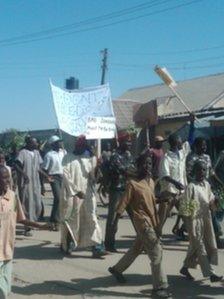
Nigerians took to the streets to protest against the removal of the fuel subsidy
I am a bus driver, plying one of the routes in Benin City. I have a family of four and I have been staying at home since the strike began. I just pray that the government will listen to the people.
Since the start of the fuel increase, it has been difficult for me to feed my family and take care of myself. Before the increase, I used to make 1,500 naira (£6; $9) to 2,000 naira (£8; $12) per day, after expenses.
Today, it is difficult to even get 500 naira after expenses. This is because fuel has gone up over 120%, from 65 naira to 145 naira and the transport fare within my state remains the same because people cannot afford any increase.
There doesn't seem much point in going to work because I am not making any money. What will I say to my family when I come home empty-handed and there is no money to buy food?
There is no-one on the streets and the businesses that are open are taking advantage and increasing their prices. I have just spoken to my friend who has just bought fuel for 150 naira. I cannot afford this.
We could not pass on the fuel increase to the passengers as they would instead trek on their bare feet to wherever they want to go. So we decided to carry them with the previous price of 50 naira per trip and not pass on the cost of the increase.
At the end of the trip I end up getting the same amount it costs to buy fuel. The cost of bus maintenance has gone up and food items have also gone up.
I cannot continue like this and I am praying for this government to reverse its decision because a lot of us cannot cope with this, as about 65% of the population have no job.
To eat is very difficult. It feels like a crime to be poor. The government keep making policies that will not benefit the common man.
Chibuzo Eke, Port Harcourt, Rivers state
Although I live in Port Harcourt, I am supporting the strike. I have not been able to go to my office to work but have been working from home instead. Suspending the protests is a good move for now.
People have been suffering the effects and have not been able to go about their normal business. I am hoping that the government will take a cue from the unions' decision to suspend the protests and show some understanding in return.
We have enough money in this country to provide the infrastructure that the government says it will put in place, without the removal of the subsidy. People do not trust that the government will carry out the necessary improvements and measures.
The Nigerian government spends over 75% of the nation's budget on recurrent expenditure, with government officials junketing around the world and the national assembly takes 25% of the budget.
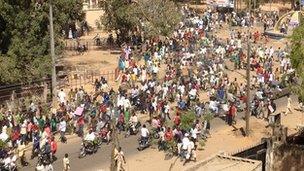
In Kano protesters marched to the governors house
Nigerians depend entirely on petroleum. We expect basic infrastructure and if we had proper power supplies, then the subsidy could be removed. Life here is very expensive.
Fuel companies supply fuel for only four hours a day. The rest of the time you have to rely on your generator. The cost of everything has gone up.
The government needs to show it can manage our resources but we don't believe that that they can do this. They also have to cut down on their expenditure if they want us to make sacrifices.
They need to build refineries and we need better roads. They have to build confidence because at the moment, there is none.
Tolu Ogunlesi, Lagos
The removal of the fuel subsidy means I, like all other Nigerians, am paying more for virtually all essential commodities, from water, fuel and cement. In many cases more than double. It means less disposable income for me and most other Nigerians.
Those of us who are against the removal of the subsidy are against the manner in which it has been done. If it is about government savings, we can show the government how to make savings in its expenditure. Some 72% of this year's budget - which is a matter of public record - will be going on salaries for the government and other officials and overhead costs.
This is an indefensible figure and it needs to come down. There is too much 'pork' in the budget. In other words, things that are not going to add any value. Some $6m has been put aside for catering the presidential palace. We want to engage with the government. We want a dialogue.
So far the government has taken a hard-line stance and I find it perplexing. I am not confident that the government that we are dealing with is a sensible or listening government.
The salaries of the legislative assembly are some of the highest in the world. Out of a population of 160 million people, more than 70% survive on less than $2 a day, so why should they be the ones who have to pay for the government's failure? They will be hit the hardest.
The government now thinks that it can get away with whatever it can and the people don't count.
I have a car and I have bought petrol a couple of times in the last two weeks and the money I have spent has only got me half my usual amount.
In my house I run a power generator, the kind that you will find in most Nigerian homes. The government argument is that it is the middle classes who are buying petrol to fuel the four cars that they each have, but everybody uses petrol.
The amount of money we spend on the petrol we buy for our generators to power our homes is a significant proportion of our disposable income.
Interviews by Helen Dafedjaiye
- Published9 January 2012
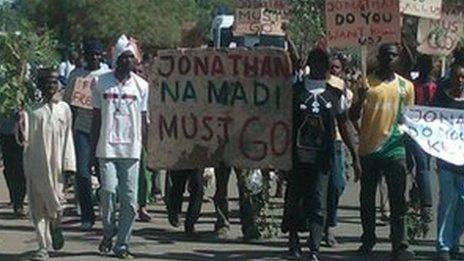
- Published28 July 2023
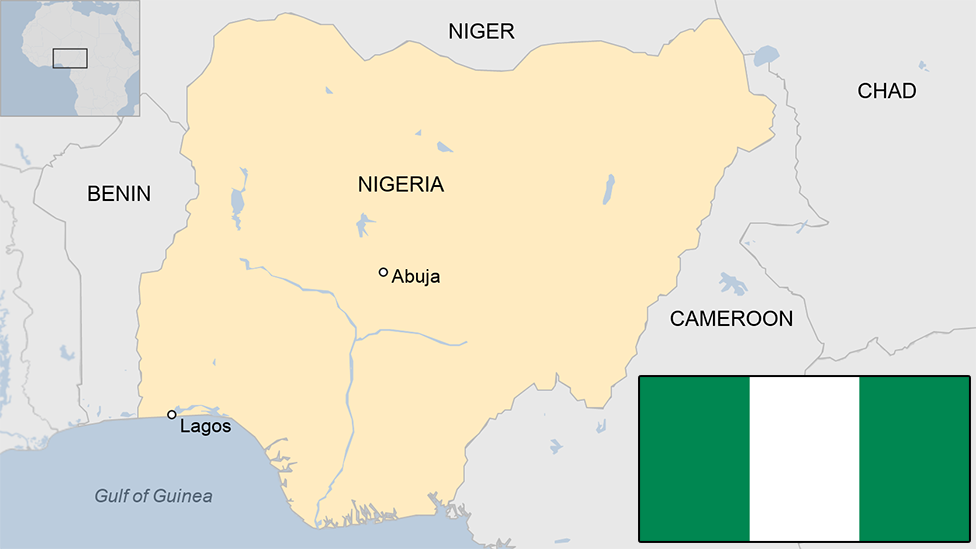
- Published13 January 2012
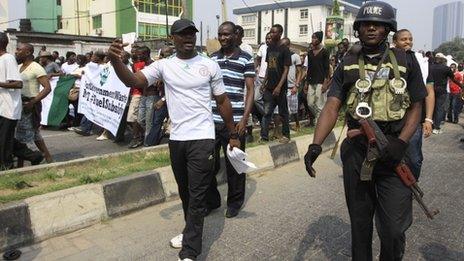
- Published12 January 2012